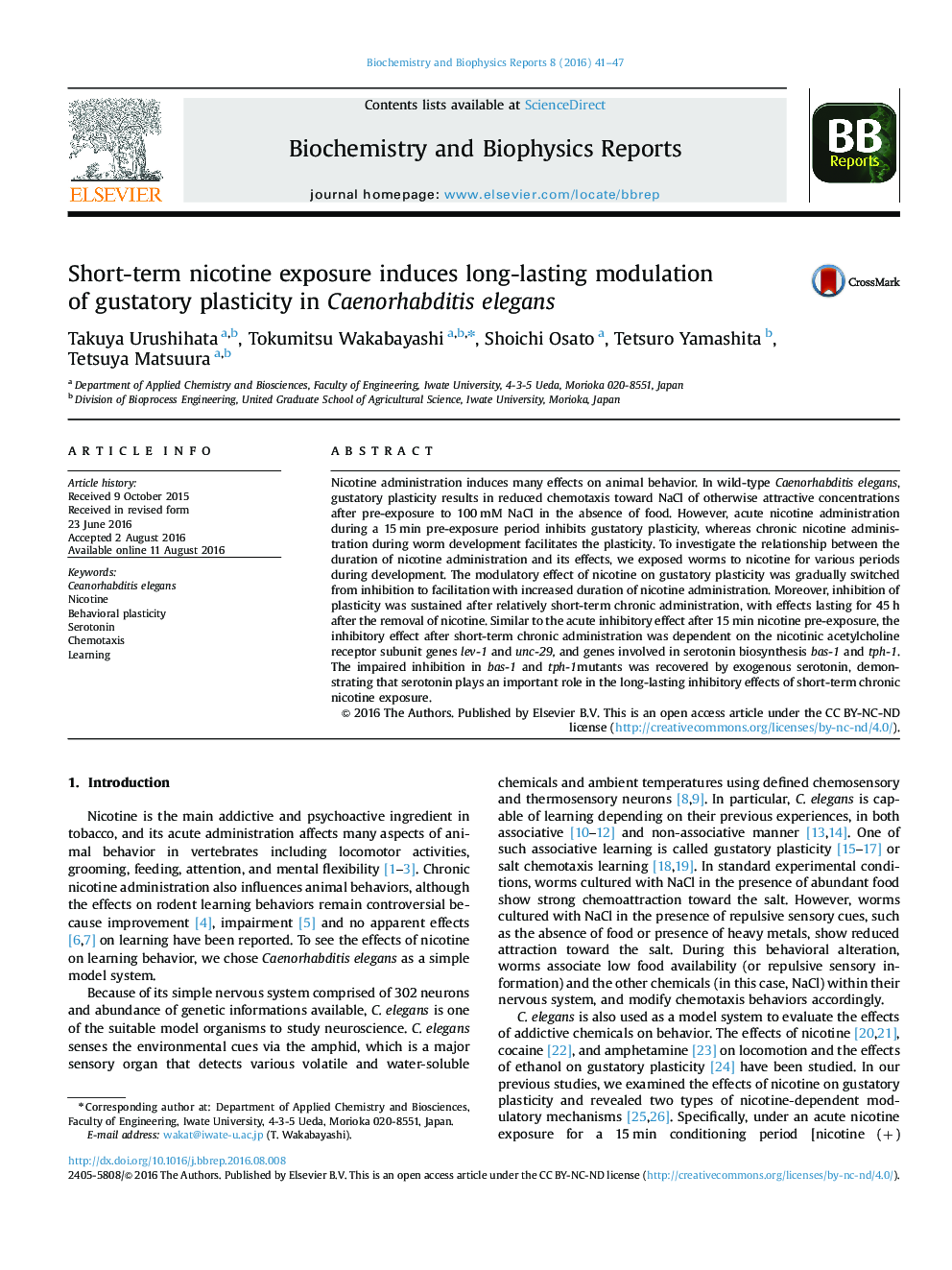| Article ID | Journal | Published Year | Pages | File Type |
|---|---|---|---|---|
| 1941578 | Biochemistry and Biophysics Reports | 2016 | 7 Pages |
•We analyzed gustatory plasticity of C. elegans after nicotine administration.•Nicotine modulates gustatory plasticity in various ways.•Nicotine inhibits gustatory plasticity after short-term chronic administration.•The inhibitory effect was long-lasting even after removal of nicotine.
Nicotine administration induces many effects on animal behavior. In wild-type Caenorhabditis elegans, gustatory plasticity results in reduced chemotaxis toward NaCl of otherwise attractive concentrations after pre-exposure to 100 mM NaCl in the absence of food. However, acute nicotine administration during a 15 min pre-exposure period inhibits gustatory plasticity, whereas chronic nicotine administration during worm development facilitates the plasticity. To investigate the relationship between the duration of nicotine administration and its effects, we exposed worms to nicotine for various periods during development. The modulatory effect of nicotine on gustatory plasticity was gradually switched from inhibition to facilitation with increased duration of nicotine administration. Moreover, inhibition of plasticity was sustained after relatively short-term chronic administration, with effects lasting for 45 h after the removal of nicotine. Similar to the acute inhibitory effect after 15 min nicotine pre-exposure, the inhibitory effect after short-term chronic administration was dependent on the nicotinic acetylcholine receptor subunit genes lev-1 and unc-29, and genes involved in serotonin biosynthesis bas-1 and tph-1. The impaired inhibition in bas-1 and tph-1mutants was recovered by exogenous serotonin, demonstrating that serotonin plays an important role in the long-lasting inhibitory effects of short-term chronic nicotine exposure.
